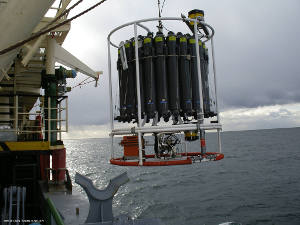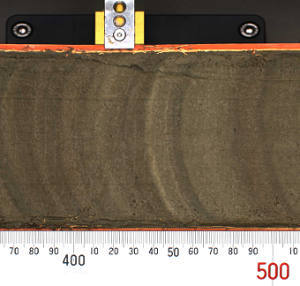BSRN
The BSRN was created to improve the quality of measurements of the Earth-atmosphere radiative fluxes that determine the thermal conditions and circulation of the atmosphere and the ocean. The ISP manages this observatory at the Italian-French Concordia station in Antarctica. Installed in 2006, the BSRN was funded by the PNRA and consists of a series of passive instruments (radiometers and photometers) that measure different components of the radiation balance (both in the solar and infrared spectrum), including the surface albedo.
In addition to these measurements, during the austral summer, the columnar content of aerosols is also measured by means of an SP02sun photometer, and the ultraviolet radiation spectrum by a UV-RAD radiometer, from which it is possible to obtain the ozone concentration, along the entire atmospheric column. Other measurements that are carried out as part of the observatory's activities are in collaboration with the Finnish Meteorological Institute (FMI) and concern the physical and optical properties of atmospheric particulate matter at ground level: its diffusion, absorption coefficients and dimensional distribution.
Pescatore Tanita
 Tanita Pescatore has a degree in Ecobiology (LM) at the University of Rome “La Sapienza” and is attending a PhD in Ecology and Sustainable Management of Environmental Resources at the University of Tuscia, (Viterbo).
Tanita Pescatore has a degree in Ecobiology (LM) at the University of Rome “La Sapienza” and is attending a PhD in Ecology and Sustainable Management of Environmental Resources at the University of Tuscia, (Viterbo).
Her research activities are focused on the dynamics and fate of some organic pollutants (anionic surfactants and pesticides) in soils in different exposure scenarios, on their effect on the natural microbial community and on the behaviour of terrestrial organisms, in particular earthworms (E. foetida).
She has gained experience in the study of the occurrence, distribution, persistence and fate of organic micro-pollutants (PAHs, PCBs, NPs, pharmaceutical residues i.e. antibiotics) in different compartments (surface waters, sediments, suspended matter, soils) and on their possible interactions with biota, through the development and validation of selective analytical methodologies (e.g. GC-MS).
Spataro Francesca
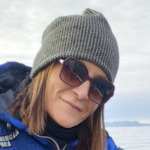 Francesca Spataro graduated in Chemistry and gained a PhD in Chemical Sciences Program at the Sapienza University in Rome; she has worked firstly with research fellows and then with a fixed-term research contract from 2005 to 2016, at the Institute on Atmospheric Pollution Research of the National Research Council (IIA-CNR). From 2016 to 2018, she carried out her research activities at the Water Research Institute (IRSA-CNR), and from 1 August 2019 she is working at the Institute of Polar Sciences (ISP-CNR), Research Area of Rome - Montelibretti .
Francesca Spataro graduated in Chemistry and gained a PhD in Chemical Sciences Program at the Sapienza University in Rome; she has worked firstly with research fellows and then with a fixed-term research contract from 2005 to 2016, at the Institute on Atmospheric Pollution Research of the National Research Council (IIA-CNR). From 2016 to 2018, she carried out her research activities at the Water Research Institute (IRSA-CNR), and from 1 August 2019 she is working at the Institute of Polar Sciences (ISP-CNR), Research Area of Rome - Montelibretti .
Dr. Spataro has gained experience in field monitoring campaigns in polar (Arctic) and temperate regions, through National and International projects.
Her research activities focus on:
- Formation, transport and removal processes of gaseous and particulate nitrogenous and halogenated inorganic pollutants.
- Heterogeneous processes involving nitrogen contaminants (especially NOx, NH3, HONO, HNO3).
- Study of the persistence of legacy and emerging organic micro-pollutants in different environmental compartments.
- Development and optimization of analytical methods for the determination of emerging organic contaminants (in particular pharmaceuticals, including antibiotics).
- Determination of persistent and emerging organic micropollutants in different environmental matrices through the combination of extraction techniques (pressurized liquid extraction, solid phase extraction, separatory funnels) with analytical techniques (spectrometry, HPLC coupled with UV detection, fluorescence and mass spectrometry).
Scopus - Author ID: 36605258800
Patrolecco Luisa
 She graduated in Chemistry in 1993 at the University of Rome "La Sapienza". From 1996 to 2019 she worked at the Water Research Institute (IRSA-CNR) as responsible of the laboratory for the analysis of Priority and Emerging Organic Micropollutants in Aquatic Ecosystems. Since 1 August 2019 she is a researcher at the Institute of Polar Sciences (ISP-CNR), as Head of the Secondary Office (RSS) in Rome (ISP Montelibretti and ISP Tor Vergata).
She graduated in Chemistry in 1993 at the University of Rome "La Sapienza". From 1996 to 2019 she worked at the Water Research Institute (IRSA-CNR) as responsible of the laboratory for the analysis of Priority and Emerging Organic Micropollutants in Aquatic Ecosystems. Since 1 August 2019 she is a researcher at the Institute of Polar Sciences (ISP-CNR), as Head of the Secondary Office (RSS) in Rome (ISP Montelibretti and ISP Tor Vergata).
Scientific interests:
Study of the environmental behaviour of organic micro- and macro-pollutants in aquatic and terrestrial ecosystems in temperate and polar areas, from the recognition of the sources, to the dynamics of diffusion, to the environmental impact. Particular attention was paid to hazardous and priority pollutants, according to the WFD (including PAHs, PCBs, organochlorine pesticides and their metabolites, PBDEs), endocrine disruptors (steroid hormones, surfactant metabolites, plasticizers) and emerging contaminants (pharmaceutical residues, antibiotics, personal care products, fragrances, perfluorinated compounds, new generation pesticides).
The research activities are aimed at:
- development and validation of advanced analytical methodologies (GC-MS, LC-MS and LC-MS / MS) for the characterization and monitoring of classes of organic pollutants in different environmental compartments (sea water, river water, ground water, wastewater, sediments, suspended particles, soil, organisms);
- study of the diffusion dynamics of legacy and emerging organic contaminants in polar marine ecosystems (Arctic, Antarctica) and their distribution in the atmosphere / ice / sea / sediment / biota compartments as a function of seasonal and climatic changes;
- partition studies of contaminants (speciation and bioavailability); accumulation / bioaccumulation / biomagnification; persistence and transformation (abiotic and biotic degradation), interaction and possible effects on the biological sphere at different trophic levels (microorganisms, organisms); ecotoxicological effects due to multiple contamination;
- circulation and physical-chemical characterization of organic matter in marine and transitional environments.
He has participated in over 25 oceanographic and sampling campaigns in the Mediterranean and Arctic environments.
Author of 60 ISI international publications, 70 publications / contributions with ISSN or ISBN, over 50 Technical Reports / National and International Project Reports.
Scopus - Author ID: 6507972161 Research Gate
Oceanography
The oceans and the polar seas are studied for their physio-chemical and biological properties, their water mass circulation patterns, their exchange of heat and energy with the atmosphere and the geological processes that are active in the different oceanic basins that contribute to the deposition of marine sediments.
Scientists at the Institute of Polar Sciences deal with several aspects of oceanography in the polar seas:
Physical and chemical oceanography
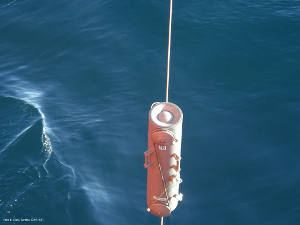 The polar oceans are one of the most important elements driving global climate. Dense and cold waters produced at high latitudes spread throughout the oceans and contribute to the global ocean Conveyor Belt. These water masses transport both heat and dissolved substances, gases and particles around the globe, significantly affecting the overall composition of the oceans and, ultimately, the Earth's climate. The chemical composition of water masses flowing in the polar seas, including their trace elements, organic compounds, stable and radiogenic isotope composition, allows us to evaluate the relationships between the different water masses (e.g. old vs. recently ventilated waters) and improve our understanding of the underlying processes. These data will then be used by climate modelers to tune and refine model parameters to improve understanding of the interactions between the water masses and improve our knowledge of the overall global climate system.
The polar oceans are one of the most important elements driving global climate. Dense and cold waters produced at high latitudes spread throughout the oceans and contribute to the global ocean Conveyor Belt. These water masses transport both heat and dissolved substances, gases and particles around the globe, significantly affecting the overall composition of the oceans and, ultimately, the Earth's climate. The chemical composition of water masses flowing in the polar seas, including their trace elements, organic compounds, stable and radiogenic isotope composition, allows us to evaluate the relationships between the different water masses (e.g. old vs. recently ventilated waters) and improve our understanding of the underlying processes. These data will then be used by climate modelers to tune and refine model parameters to improve understanding of the interactions between the water masses and improve our knowledge of the overall global climate system.
The ice-breaker R/V Laura Bassi
In 2019, thanks to a dedicated funding program by the Ministry of University and Research (MUR), Italy acquired a research ship with ice-breaking capabilities to conduct research activities in the polar regions. The research vessel was named after Laura Bassi, the first woman in the world to obtain an official academic professorship, and she did this at the University of Bologna in the 18th century.
The vessel is owned by the National Institute of Oceanography and Applied Geophysics (OGS) in Trieste and receives funds to conduct research activities from the National Research Program in Antarctica (PNRA). It also serves the polar scientific community thanks to an agreement between the major Research Institutes in Italy working in the polar regions and those managing the polar infrastructures (OGS, CNR and ENEA). The use of the R/V Laura Bassi has also been included in the strategic planning of the Italian Arctic Research Program (PRA).
The R/V Laura Bassi made its first expedition to the Ross Sea (Antarctica) in the austral summer of 2019-2020.
An extensive instrumental upgrade to the vessel is currently underway, with the contribution of the ISP staff, to convert it into a modern multipurpose scientific platform that can serve different scientific communities working on various research fields, including physical, chemical and biological oceanography, paleoceanography, geophysics, marine geology and atmospheric physics and chemistry.
For more information please refer to the OGS website.
Mario Zucchelli Station (MZS)
Mario Zucchelli Station (MZS) is located at 74° 41′ S, 164° 6′ E, sitting on a granite promontory in Terra Nova Bay (Ross Sea - Antarctica) at 15 m above sea level.
The station was named in memory of Eng. Mario Zucchelli who coordinated the ENEA Unit for Antarctica (ENEA-UTA) for sixteen years. MZS has been operating since 1985 during the austral summer and supports all the research activities planned by the National Research Program in Antarctica (PNRA).
For more information refer to the www.pnra.aq website.
Organic Geochemistry Laboratory
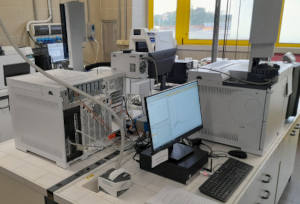 In the Organic Geochemistry Laboratory at the Institute of Polar Sciences in Bologna, researchers and students deal with modern processes and paleo reconstructions by coupling the information provided by fossil biomarkers and stable carbon and nitrogen isotopes. Biomarkers and stable isotopes are geochemical proxies used to investigate the feedback mechanisms between the Earth climate and the biogeochemical cycles. The laboratory is equipped with various instruments to extract, purify and analyze a suite of different biomarkers, including terrestrial compounds (e.g. lignin phenols, aliphatic chain lipids, cutin-derived products) to understand land-ocean carbon exchange (e.g. permafrost thawing, river floods, etc.), alkenones for paleo-temperature reconstructions and highly branched isoprenoids for sea ice reconstructions. In addition, the laboratory is equipped with a Preparative Fraction Collector (Agilent-Gerstel) for the collection of individual compounds. This technique is especially useful for the radiocarbon analysis of biomarkers and can be very useful to derive an age model for the sedimentary archives and to investigate the processes related to permafrost thawing.
In the Organic Geochemistry Laboratory at the Institute of Polar Sciences in Bologna, researchers and students deal with modern processes and paleo reconstructions by coupling the information provided by fossil biomarkers and stable carbon and nitrogen isotopes. Biomarkers and stable isotopes are geochemical proxies used to investigate the feedback mechanisms between the Earth climate and the biogeochemical cycles. The laboratory is equipped with various instruments to extract, purify and analyze a suite of different biomarkers, including terrestrial compounds (e.g. lignin phenols, aliphatic chain lipids, cutin-derived products) to understand land-ocean carbon exchange (e.g. permafrost thawing, river floods, etc.), alkenones for paleo-temperature reconstructions and highly branched isoprenoids for sea ice reconstructions. In addition, the laboratory is equipped with a Preparative Fraction Collector (Agilent-Gerstel) for the collection of individual compounds. This technique is especially useful for the radiocarbon analysis of biomarkers and can be very useful to derive an age model for the sedimentary archives and to investigate the processes related to permafrost thawing.
Facilities
The Organic Geochemistry Laboratory is equipped with several gas chromatographers and mass spectrometers for the analysis of carbon and nitrogen stable isotopes, measurement of carbon, hydrogen, nitrogen and sulphur content in organic matter and the extraction/quantification of organic biomarkers. The analytical facilities include:
- Thermo Fisher Scientific FLASH 2000 Element Analyzer coupled with a mass spectrometer DeltaQ (EA-IRMS)
- GC Agilent GC 7820-MSD EI 5977B
- GC Agilent 8860-FID G2790A
- GC Agilent 8890 equipped by a Gerstel Preparative Fraction Collector (PFC)
For more information: Dr Tommaso Tesi - tommaso.tesi AT cnr.it
Collaborations
National collaborations
The Institute of Polar Sciences collaborates with several National Research Institutes and Universities and provides technical and scientific support and know-how in cooperation projects with public bodies and private companies.
Many research topics are developed in collaboration with other Institutes of the Department of Earth System Sciences and Environmental Technologies (DSSTTA) of the National Research Council of Italy, including for instance the Institute of Marine Sciences (ISMAR), the Institute for the Study of Anthropogenic Impact and Sustainability in the Marine Environment (IAS), the Institute for Marine Biological Resources and Biotechnology (IRBIM), the Institute of Atmospheric Sciences and Climate (ISAC) and the Institute of Atmospheric Pollution Research (IIA). This allows to extend and integrate the ISP skills in a complementary and multidisciplinary way.
Research topics related to the geology and hydrology of the polar regions are developed in collaboration with the Institute of Geosciences and Earth Resources (IGG) and the Institute of Environmental Geology and Geoengineering (IGAG), which are also involved in Arctic and Antarctic polar research.
Research activities on terrestrial ecosystems are conducted in collaboration with the Research Institute on Terrestrial Ecosystems (IRET).
ISP actively collaborates also with other National Research Institutes, including ENEA, INGV, OGS, INRiM, INAF, and Universities, such as the Chemistry Departments of the Universities of Florence, Pisa, Perugia, Turin and Genoa and the Department of Environmental Sciences, Informatics and Statistics of Ca’ Foscari University of Venice. Other collaborations in different areas of research are underway with the University of Insubria, La Sapienza, Messina, Florence, Naples, the Milan Polytechnic and the University of Milano-Bicocca.
Working Group on Outreach and Communication
The Outreach and Communication Working Group is made up of 10 members, appointed by the Director, and with the following tasks:
- Development and updating of the institutional website.
- Check for updates of websites associated with national polar activities.
- Updating the public of our activities through social media.
- Organization of seminars.
- Internal communication within the Institute.
- Collection and cataloguing of ISP Communications and Dissemination activities.
- Collaboration with the CNR Outreach site working group.
- Collaboration with the Press Office of the CNR.
- Collaboration with the Communication Office of the CNR.
Contact: isp-gdl-comunicazione AT isp.cnr.it
The Communication WG of the Institute of Polar Sciences consists of:
Angelo Pietro Viola
(Coordinator from 2019 to March 2023 )
.
.
.
.

Daniela Beatrici
(Webmaster)
Warren Raymond Lee Cairns

Francesco De Biasio
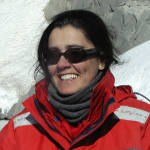
Angelina Lo Giudice
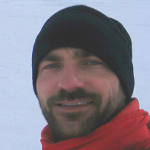
Mauro Mazzola

Paolo Montagna
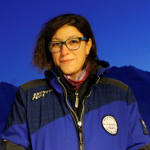
Maria Papale

Jasmin Rauseo

Francesca Spataro

Clara Turetta
(Coordinator)
Giulio Verazzo
------------------------------------------------------------------------------------
Selezione Video altri canali
| Video1 | Video2 |
|---|---|
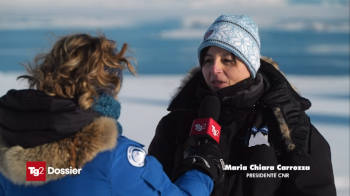 |
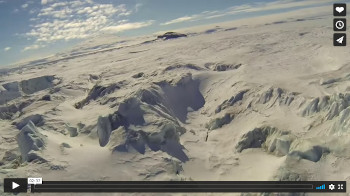 |
 Ministero dell'Universita e Ricerca
Ministero dell'Universita e Ricerca
Programma Ricerche Artico
Programma Nazionale di Ricerca in Antartide
 Ministero degli Affari Esteri e della Cooperazione Internazionale
Ministero degli Affari Esteri e della Cooperazione Internazionale
L'Italia e l’Artico
L’Italia e l’Antartide
CNR-ISP
National Research Council
Institute of Polar Sciences
c/o Scientific Campus - Ca' Foscari University Venice - Via Torino, 155 - 30172 VENEZIA MESTRE (VE)
Phone: +39 041 2348547 - E-mail: protocollo.isp AT pec.cnr.it
Fax: +39 041 2348 549 - Codice Fiscale: 80054330586 - P.I.:02118311006
Unless otherwise indicated, the content of this site is licensed : Attribution Non Commercial Share Alike 4.0 International (CC BY-NC-SA 4.0)
Privacy policy e Cookie policy - Transparent administration (CNR)







